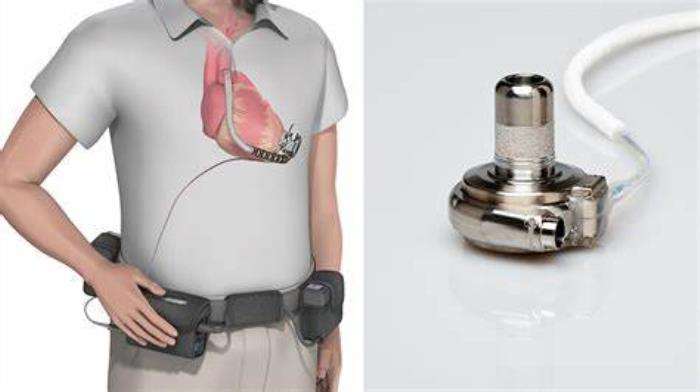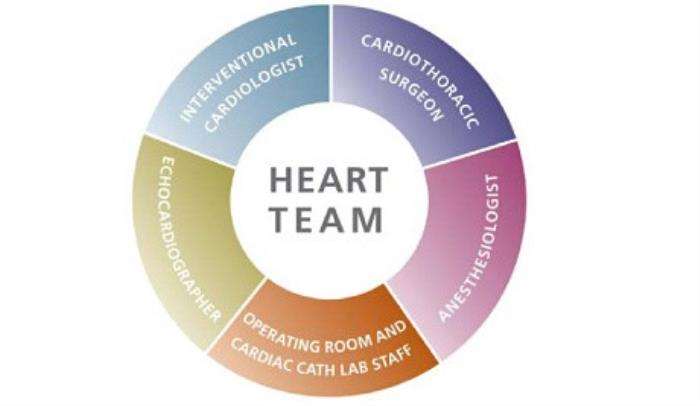The advent of artificial hearts has revolutionized the management of patients with end-stage heart failure. These devices serve as a temporary solution to support patients awaiting heart transplantation. By mimicking the pumping action of a natural heart, artificial hearts ensure adequate blood circulation, thereby prolonging life and improving quality of life for patients who are otherwise in critical condition.
Medical disclaimer: This content is for general awareness and does not replace a doctor’s consultation. For diagnosis or treatment decisions, consult a qualified specialist.
Types of Artificial Hearts Used in Clinical Practice
There are primarily two types of artificial hearts: total artificial hearts and ventricular assist devices (VADs). The total artificial heart replaces the entire heart, while VADs support one or both ventricles. Each type has its unique applications and benefits, tailored to meet the specific needs of patients based on their clinical status and underlying heart conditions.
Indications for the Use of Artificial Hearts
Artificial hearts are indicated for patients with severe heart failure who are not candidates for immediate heart transplants. Common conditions leading to the need for these devices include ischemic cardiomyopathy and non-ischemic cardiomyopathy. The use of artificial hearts can stabilize patients, allowing them to regain strength while awaiting a suitable donor organ.

Patient Selection Criteria for Artificial Heart Placement
Selection for artificial heart placement involves a comprehensive evaluation of the patient's overall health, including their cardiac function, other comorbidities, and psychological readiness. A multidisciplinary team typically assesses these factors to determine if the patient is a suitable candidate for this advanced therapy, ensuring optimal outcomes.
Benefits of Using Artificial Hearts as a Bridge to Transplant
Artificial hearts provide several benefits, including improved hemodynamics, enhanced exercise capacity, and better overall survival rates while awaiting transplantation. They also alleviate symptoms of heart failure, allowing patients to regain independence and participate in daily activities, which is crucial for their psychological well-being.
Potential Complications Associated with Artificial Hearts
Despite their benefits, artificial hearts are not without risks. Complications may include infection, thromboembolic events, and device malfunction. Patients require close monitoring and management to mitigate these risks, ensuring timely intervention should complications arise.
Postoperative Care Following Artificial Heart Implantation
Postoperative care is critical for patients with artificial hearts. This includes regular monitoring for infection, assessing device function, and managing anticoagulation therapy. A structured follow-up plan is essential to ensure patient safety and to optimize the timing for heart transplantation.
Psychosocial Impact of Living with an Artificial Heart
The psychological and emotional impact of living with an artificial heart can be significant. Patients may experience anxiety and depression related to their health status and the uncertainty of transplantation. Support from healthcare professionals and counseling services is vital to help patients cope with these challenges and maintain a positive outlook.
Technological Advances in Artificial Heart Design
Recent advancements in technology have led to the development of more sophisticated artificial hearts. Innovations include miniaturization of components, improved biocompatibility, and enhanced battery life. These improvements aim to increase the longevity and functionality of artificial hearts, making them more effective as a bridge to transplant.
The Role of Multidisciplinary Teams in Artificial Heart Management
Management of patients with artificial hearts involves a multidisciplinary approach, including cardiologists, surgeons, nurses, and social workers. This collaborative effort ensures comprehensive care, addressing the medical, emotional, and logistical needs of patients, which is critical for successful outcomes.

Patient Education and Informed Consent for Artificial Heart Therapy
Informed consent is a fundamental aspect of artificial heart therapy. Patients must be educated about the procedure, potential risks, benefits, and the importance of adherence to follow-up care. This education empowers patients to make informed decisions about their treatment options.
Long-Term Outcomes After Artificial Heart Implantation
Long-term outcomes for patients with artificial hearts vary based on several factors, including the underlying cause of heart failure and the patient's overall health. Studies suggest that many patients experience improved survival rates and quality of life while awaiting transplantation, highlighting the importance of these devices in cardiac care.
Ethical Considerations in the Use of Artificial Hearts
The use of artificial hearts raises several ethical considerations, including equitable access to transplantation and the allocation of donor organs. Healthcare providers must navigate these complex issues to ensure fair treatment for all patients, balancing the need for advanced therapies with the realities of organ availability.
The Future of Artificial Hearts in Cardiac Medicine
The future of artificial hearts looks promising, with ongoing research focused on improving device performance and patient outcomes. Innovations such as bioengineered hearts and advancements in material science may pave the way for more effective and durable solutions for patients with severe heart failure.
Comparative Effectiveness of Artificial Hearts and Heart Transplants
While both artificial hearts and heart transplants are viable options for patients with end-stage heart failure, their effectiveness can differ based on individual circumstances. Artificial hearts provide a temporary solution, while heart transplants offer a more permanent fix. Understanding the comparative effectiveness of these treatments is essential for guiding patient management.
Role of Artificial Hearts in Pediatric Cardiology
Artificial hearts are also utilized in pediatric patients with severe heart failure. The unique anatomical and physiological considerations in children require specialized devices and management protocols. The use of artificial hearts in this population presents distinct challenges and opportunities for improving outcomes in young patients.
Impact of Artificial Hearts on Healthcare Systems
The integration of artificial hearts into clinical practice has significant implications for healthcare systems. These devices can reduce hospitalizations for heart failure and improve patient outcomes, but they also require substantial resources for implantation, monitoring, and follow-up care. Policymakers must consider these factors when developing healthcare strategies.
The Impact of Heart Transplant on Life Expectancy
Learn about how a heart transplant can significantly extend life expectancy for patients with severe heart disease. This life-saving procedure not only offers a second chance at life but also improves overall quality of life by enabling patients to engage in activities they once thought impossible. Discover the long-term benefits and survival rates associated with heart transplants.
How Organ Matching Works for Heart Transplants in India
Understand the critical process of organ matching for heart transplants in India. Matching a donor heart to a recipient involves complex evaluations of blood type, tissue compatibility, and size to ensure the highest chance of success. This process is crucial in reducing complications and providing patients with the best possible outcomes.
Current Research Trends in Artificial Heart Technology
Ongoing research in artificial heart technology focuses on enhancing device performance, reducing complications, and improving patient outcomes. Studies are exploring new materials, advanced sensors for real-time monitoring, and innovative designs that may lead to the next generation of artificial hearts, further bridging the gap to transplantation.
Best Heart Transplant in India
The Best Heart Transplant in India offers a life-saving solution for patients with end-stage heart failure, using advanced surgical techniques and comprehensive post-transplant care.
Best Heart Transplant Hospitals in India
The Best Heart Transplant Hospitals in India provide state-of-the-art facilities, skilled transplant specialists, and multidisciplinary teams for seamless patient care and recovery.
Heart Transplant Cost in India
The Heart Transplant Cost in India is structured to offer affordability while ensuring access to world-class transplant services and comprehensive care packages.
Best Heart Transplant Surgeons in India
The Best Heart Transplant Surgeons in India have extensive experience in performing complex transplants, ensuring precise techniques and personalized patient care for optimal outcomes.
FAQs about Artificial Hearts as a Bridge to Transplant
What is an artificial heart?
An artificial heart is a mechanical device that replaces the function of a failing heart. It can be a total artificial heart or a ventricular assist device (VAD) used as a temporary solution for patients awaiting a heart transplant.
How long can a patient live with an artificial heart?
The duration a patient can live with an artificial heart varies but may range from several months to a few years, depending on individual health factors and the presence of complications.
What are the risks associated with artificial hearts?
Risks include infection, device malfunction, and thromboembolic events. Patients require careful monitoring and management to minimize these risks.
How does one get listed for a heart transplant?
Patients must undergo a thorough evaluation by a transplant team to assess their eligibility for heart transplantation. Factors considered include overall health, severity of heart failure, and psychosocial readiness.
Can artificial hearts be used in children?
Yes, artificial hearts can be utilized in pediatric patients, although specialized devices and management approaches are required to address their unique needs.
Personalized medicine tailors medical treatment to the individual characteristics of each patient, improving outcomes in heart transplant procedures. By considering genetic, biomarker, and phenotypic data, personalized medicine helps in selecting the most suitable immunosuppressive regimens, predicting potential complications, and monitoring post-transplant recovery. This approach enhances the precision of treatment, reduces the risk of rejection, and promotes better long-term health for transplant recipients. The Role of Personalized Medicine in Heart Transplant Success
Updated for 2025 – Discover the best hospitals in India for heart transplant procedures, including top choices, advanced techniques, and cost-effective options. Heart Transplant Cost in India
Discover the best hospitals in India for heart transplant procedures, including top choices, advanced techniques, and cost-effective options. Heart Transplant in India